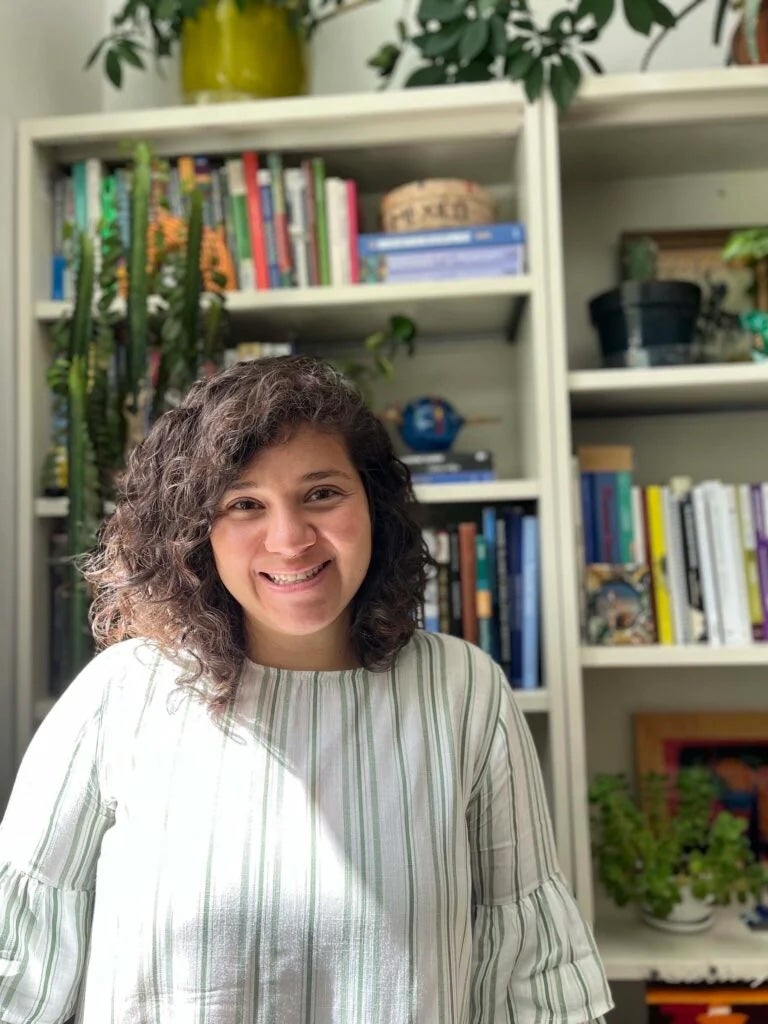Fisheries are a vital industry in Rhode Island: from commercial to recreational to provisioning fishing for familial or community sharing, the practice holds significant economic and cultural value to the Ocean State. A variety of scientific tools are employed to successfully manage marine fisheries, such as mathematical models used for fish stock population estimates and assessment. An equally important aspect is the human dimension–understanding the experiences of people who fish and the role fishing plays in different communities. Melva Treviño Peña, assistant professor of Fisheries, Animal, and Veterinary Sciences (FAVS), is bringing this important perspective to the Rhode Island Marine Fisheries Council.
Appointed to the council earlier this year, Treviño is a human geographer who applies ethnographic methods to study how people utilize and gain access to coastal resources. Her social science lens is a rare but meaningful addition to a group that serves in an advisory capacity to the Director of the Rhode Island Department of Environmental Management (DEM) and other state agencies on the planning, management, and regulation of marine fisheries in the state. “I’m already learning so much,” Treviño says. “There are so many topics the council weighs in on, including water quality for shellfishing closures, aquaculture permits, regulations for commercial fishermen, and specifics for recreational fishing.”
She will serve a four year term as the Fisheries Conservation and Management Representative, replacing Professor Michael A. Rice, Professor of FAVS, who had previously served for eight years. When Rice concluded his service on the council, he was proactive in suggesting Treviño as his replacement. Previously a Peace Corps volunteer, he worked with anthropologists who taught him that fishery management is not simply about managing wildlife but managing and working with the people who fish, and this experience informs his appreciation for a social science approach to the industry. “There have always been people with fish modeling expertise on the council. And right now, the DEM has an excellent stock assessment ability,” he says. “What becomes important now, as we refine our management skills, is building in the human dimensions–elements directly within the fisheries regulation making mechanism.”
In her research at URI, Treviño works with marginalized ethnic and racialized communities, including immigrants and refugees. She points out that Rhode Islanders are not always fishing solely for sustenance–sometimes the practice is done for important cultural reasons–and that these voices are not always reflected in decision making processes about fisheries management. “I advocate for rethinking coastal fishing access as more than just this fun activity people do,” she says. “It strengthens communities. It’s a whole resource of social infrastructure that also provides nutritional value for many households.” As for connecting this work to her service on the council, she adds: “I’m looking forward to being a bridge between these different groups in constructive ways.”
As an emergent, early-career scientist, Treviño points to Rice’s encouragement as integral to her new position on the council. “He’s really the reason I am there,” she says of Rice. “I would have never thought that I was qualified or that I should be assigned for something like this at this moment in my life. But he was so encouraging about it. He cares a lot about early career scientists, and it shows at every level: from undergraduates to Ph.D. students, postdocs to faculty.” Rice echoes her enthusiasm: “I brought my introductory fishery students to the Council’s October meeting,” he says. “I was impressed with [Treviño]–she was really mixing it up!”

